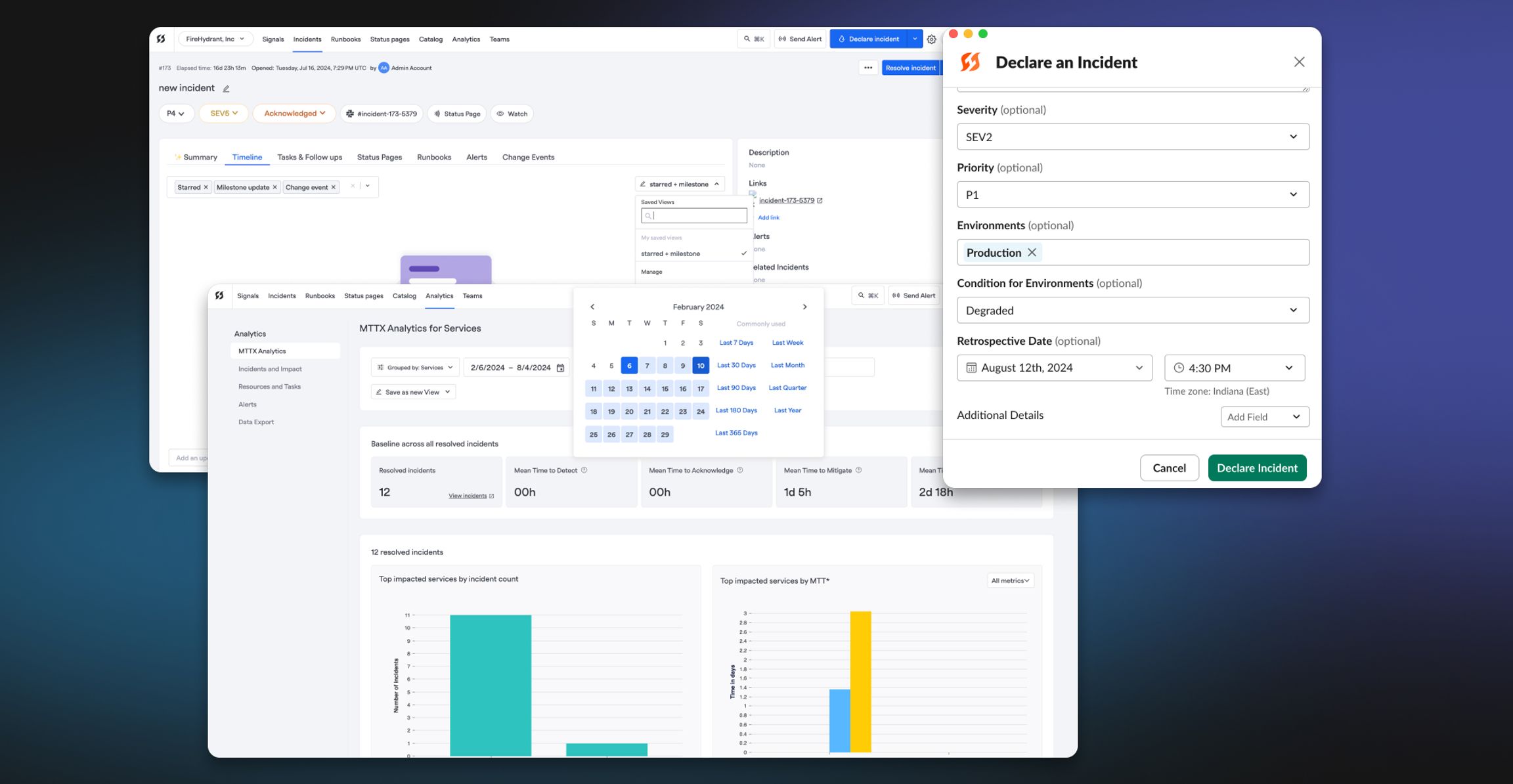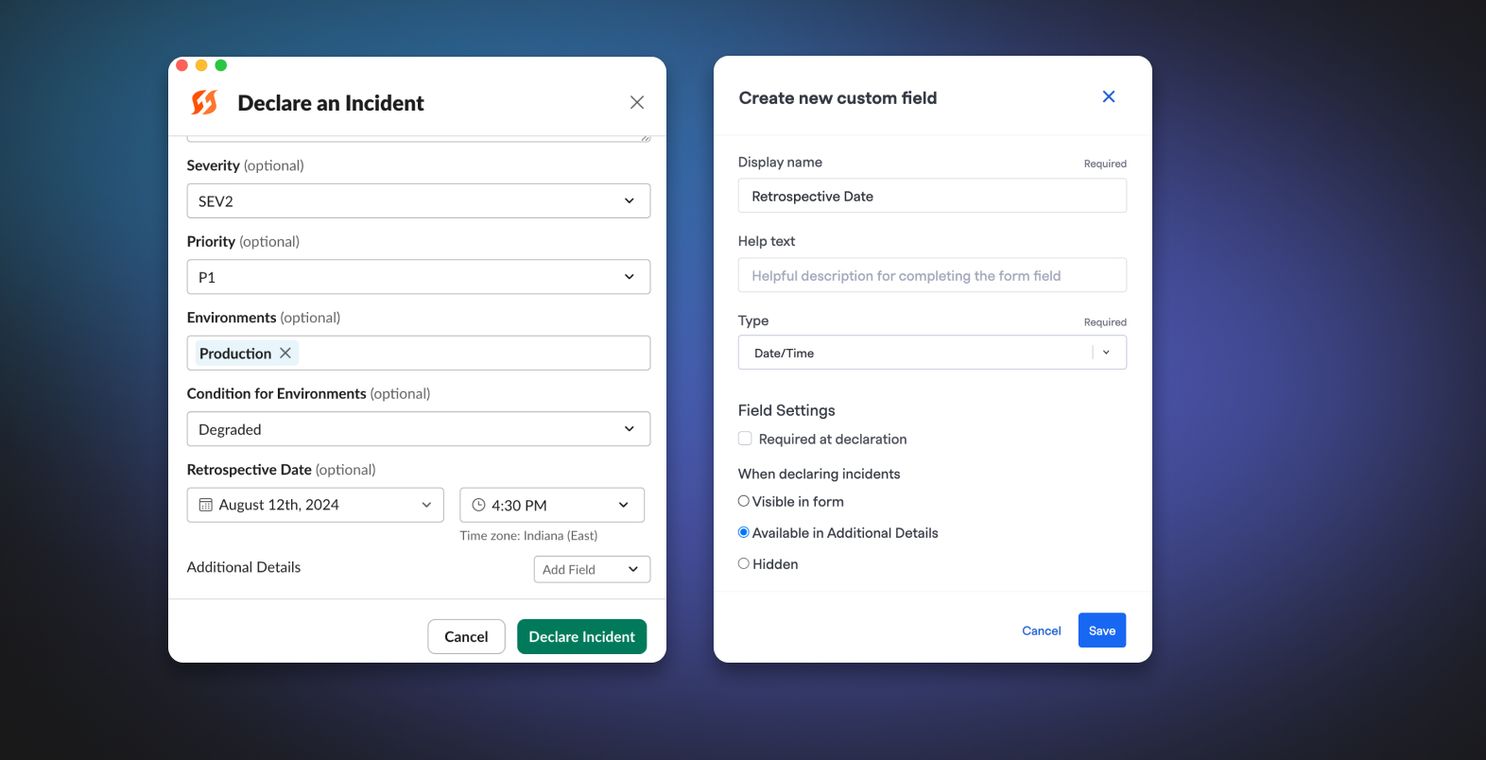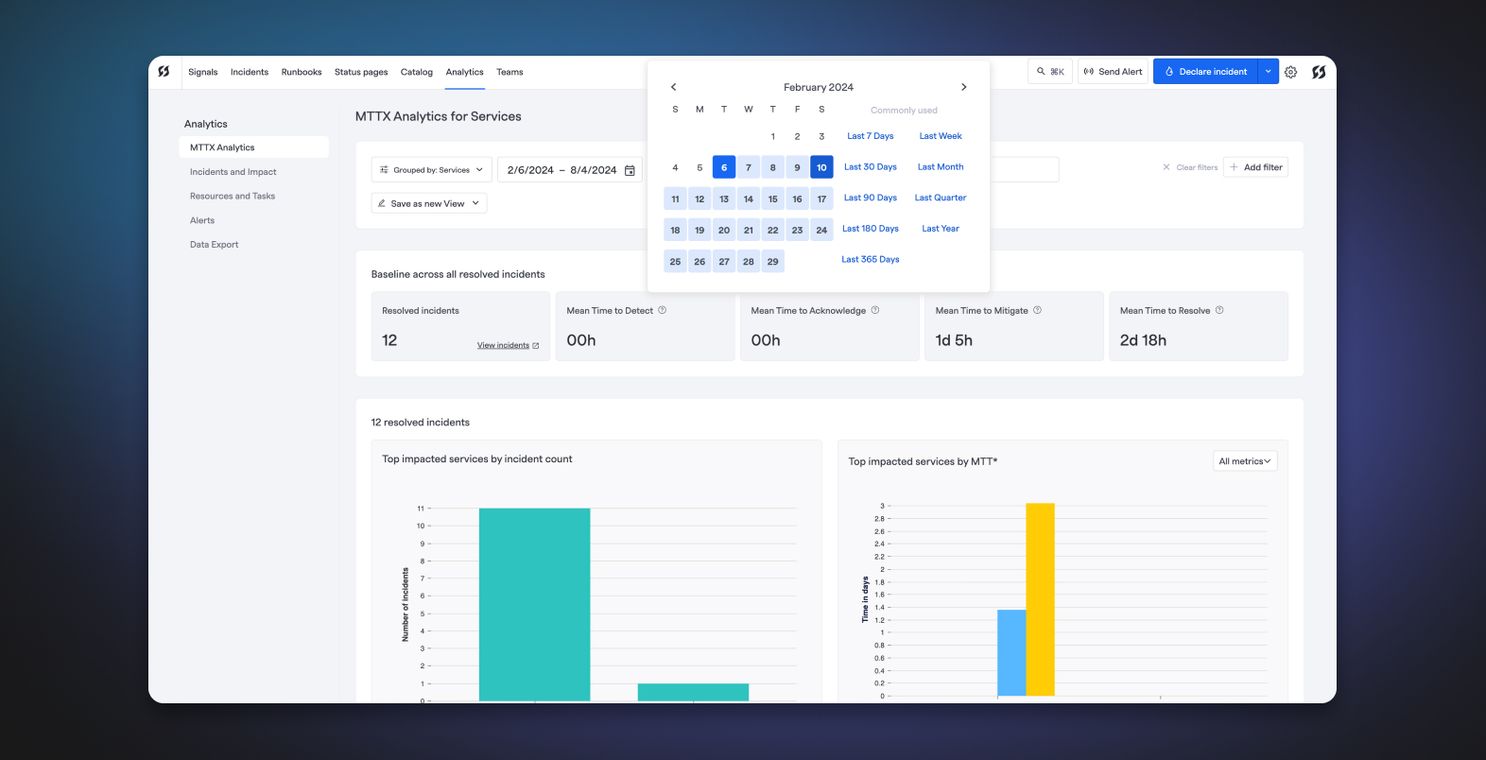
DateTime Custom Fields#datetime-custom-fields
We've enhanced our custom field functionality by introducing a new date/time custom field type. This addition offers greater flexibility and precision in incident reporting and management. Here's what you need to know:

- Users can now create custom fields that specifically accept date and time inputs.
- This feature is particularly useful for precise timing information related to incidents.
- DateTime custom fields can be added via the Incident Settings page.
New time-based filters in Analytics#new-time-based-filters-in-analytics
We're happy to introduce new time-based filters in Analytics. You will now see Last Week, Last Month, Last Quarter, and Last Year options in the Date Range picker. These additional filters will make gathering data easier for reporting.

Other Improvements, Bug Fixes and Deprecations#other-improvements-bug-fixes-and-deprecations
- 💅 We have cleaned up the UI on our Catalog show pages. Improvements include better loading states and condensed header sizes.
- 💅 Users can now create global saved views and default views for incident timelines. This feature enables quick switching between different perspectives and configurations without the need to manually adjust filters and settings each time.
- 💅 The update incident and resolve incident buttons are now displayed in the command center header.
- 💅 We have added the ability to post updates into incident Jira tickets. This brings more incident status visibility to users who want to leverage both FireHydrant and Jira.
- 💅 Added relative time selection for task due dates (e.g., "due in 15 minutes"), with the option to switch to absolute time when necessary.
- 🐛 We addressed an issue with our OpsGenie integration in the
fh pagecommand. Previously, we were returning more users than Slack could display. We now limit the return to the first 100 users, matching Slack's display capacity. - 💥 We have deprecated the Data Export integration and Data Export page from Analytics. All data is still available via API, webhooks, and other means.
See FireHydrant in action
See how our end-to-end incident management platform can help your team respond to incidents faster and more effectively.